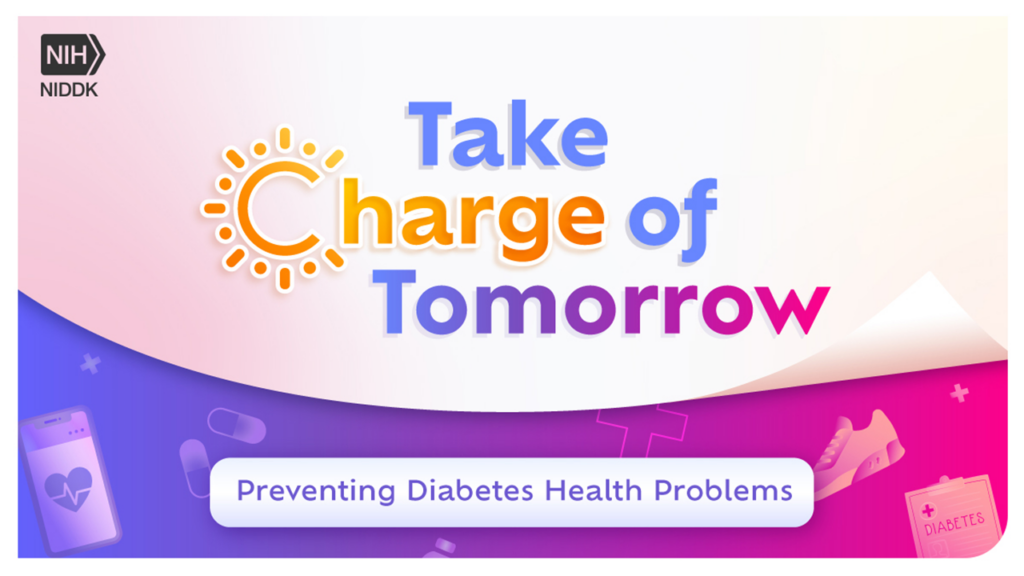November is National Diabetes Month. This year’s theme of National Diabetes Month 2024, “Take Charge of Tomorrow: Preventing Diabetes Health Problems,” highlights how today’s actions can shape healthier futures.
On National Diabetes Month 2024, healthcare organizations, policymakers and community programs are raising awareness for the nearly 29.3 million Americans with diagnosed diabetes, alongside 9.7 million undiagnosed and 115.9 million at risk with prediabetes, based on the American Heart Association’s (ASA) latest 2024 Heart Disease & Stroke Statistics report.
Diabetes, a chronic condition marked by high blood glucose levels due to insulin issues, brings complications like heart disease, stroke, neuropathy and diabetic foot ulcers. In 2021, around 529 million people worldwide were affected, with type 2 diabetes making up 96 percent of cases. The US has a particularly heavy diabetes-related burden due to elevated high body mass index (BMI).
Empowering Patients with Personalized Diabetes Management
2024 has seen several advancements that were designed to make diabetes care more accessible, particularly for people with type 2 diabetes and others looking to optimize their health.
January AI’s Glucose Prediction App: Better Food Choices for Blood Sugar Health
In October, January AI updated its metabolic health app with AI-driven tools to predict food’s impact on blood sugar before eating, HealthKit integration and an advanced photo-based food scanner. With the “Hack My Food” feature and the AI health coach “Jan,” the app offers a non-invasive, affordable way for users to manage blood glucose and optimize nutrition.
Dexcom Stelo: Broadening Access to Glucose Monitoring for Non-Insulin Users
The Dexcom Stelo became the first over-the-counter (OTC) continuous glucose monitor (CGM) for non-insulin users and prediabetic adults. This device gives people the ability to monitor how lifestyle factors impact glucose levels without needing a prescription. Stelo’s new TV commercial shed further light on the device’s empowering use. For healthcare providers, this broadens patient access to preventive glucose monitoring and supports proactive lifestyle management.
Abbott’s Lingo and Libre Rio: Real-Time Glucose Insights
Abbott’s Lingo and Libre Rio build on its FreeStyle Libre technology, making real-time glucose data accessible to a wider population. Lingo is aimed at those managing metabolic health, while Libre Rio is for type 2 diabetes patients using lifestyle changes to manage the condition. These tools give users detailed glucose insights to make informed and personalized choices. Abbot also joined Medtronic to pair its sensors with the latter’s automated insulin delivery (AID) systems.
Insulet SmartAdjust Technology for Type 2 Diabetes: Simplified Insulin Dosing
In August, the US Food and Drug Administration (FDA) approved Omnipod 5 for type 2 diabetes, marking it as the first automated insulin dosing device for this population. Working on the SmartAdjust technology, this system integrates with compatible CGMs and insulin pumps, delivering insulin every five minutes. By minimizing manual input, it allows patients to focus more on their health.
Addressing Gestational Diabetes and Maternal Health Equity
Two American Diabetes Association (ADA) collaborations this year target maternal health for women with gestational diabetes (GDM), focusing on underserved communities. In October, the ADA and Blue Cross and Blue Shield of Minnesota launched an initiative to support GDM patients through early screenings and structured care navigation. This project will equip community health workers and doulas to connect at-risk women with essential resources.
Separately, the ADA’s prior partnership with the CVS Health Foundation in New York City will aim to expand access to screenings and healthcare support in underserved areas. By integrating educational resources and postpartum follow-up, this initiative hopes to reduce potential long-term risks of type 2 diabetes for women with GDM.
Preventing Diabetes Complications in At-Risk Populations: Vision Loss and Vabysmo’s Impact on Diabetic Macular Edema
Genentech’s ELEVATUM study on Vabysmo (faricimab-svoa) demonstrated significant benefits for Black, Hispanic and Latino populations with diabetic macular edema (DME), a leading cause of vision loss among diabetes patients. After one year, participants gained an average of 12.3 letters on vision tests, with Hispanic and Latino groups showing a notable 14.1-letter gain.
This study, one of the first to focus on underrepresented DME patients, conducted trials in diverse settings. The data supports a more inclusive approach to DME care, such that clinicians working with these populations gain insights into effective DME management and the potential for vision preservation in diabetes care.
Along with the ADA, Genentech also plans to increase eye health equity through a new program on identifying barriers to eye care in the Washington, DC area, specifically targeting Black and Hispanic/Latino communities.
Managing Diabetes Complications: The Diabetic Foot Ulcer Market
Diabetic foot ulcers (DFUs) remain a critical challenge for people with diabetes, often leading to infection or amputation. The US DFU treatment market, part of a projected $7.2 billion global market by 2031, continues to grow with advancements like bioengineered skin substitutes, hyperbaric oxygen therapy and advanced wound dressings. Companies such as Medtronic and Smith & Nephew are at the forefront, developing therapies that reduce healing time and address DFU complications earlier.
Prevention Through Awareness: Take Charge of Tomorrow
The theme, “Take Charge of Tomorrow,” is a reminder that proactive management can prevent serious health issues. National Diabetes Month calls on individuals to assess their diabetes risk, particularly for those with prediabetes. Through the National Diabetes Prevention Program (NDPP), communities have access to resources that promote lifestyle changes, with evidence showing risk reduction for type 2 diabetes.
Ever on the path to proactive health, the ADA, in collaboration with Abbott, also plans to focus on the nutritional needs of people with diabetes and obesity — an initiative that will provide healthcare professionals with data-driven guidance on nutrition formulas for improved glycemic control and overall wellness.
As National Diabetes Month approaches, taking charge of your health today can be more than preventative. The National Institute of Diabetes and Digestive and Kidney Diseases (NIDDK) recommends key steps: manage your A1C, blood pressure and cholesterol levels by consulting regularly with your doctor to stay informed on your goals. Building healthy habits gradually — like eating well, staying active and getting enough sleep — can make a meaningful difference.











Join or login to leave a comment
JOIN LOGIN